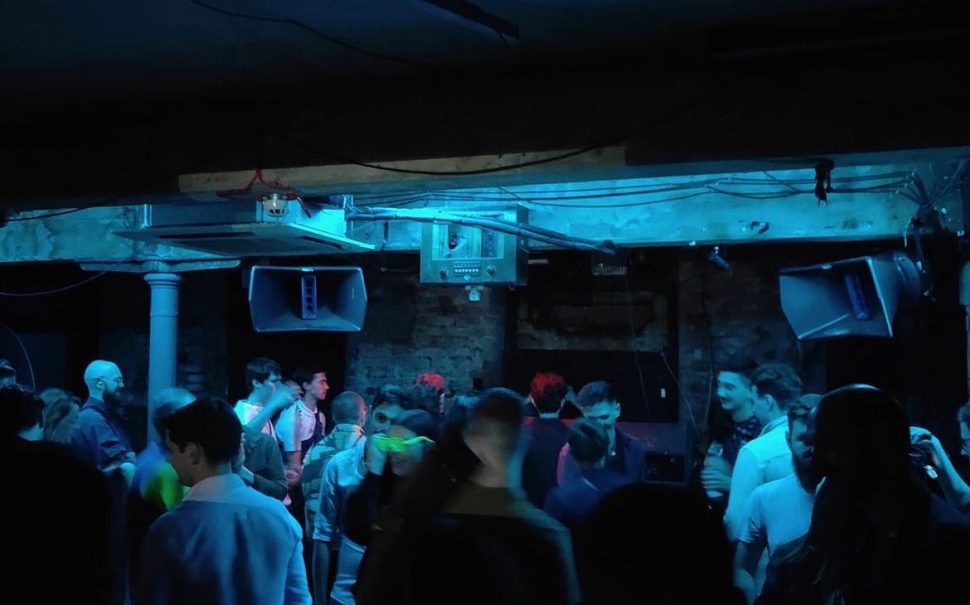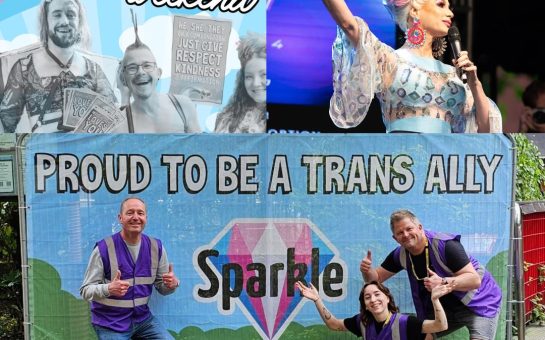Dance music in Manchester is big business with a storied history, from tales of famous former club The Hacienda, to Madchester and the 90s rave scene.
The past and present of the city’s music scene features heavily in the council’s marketing for one of the fastest growing cities in the UK.
However, the underground scene from which so much talent and money springs for the city is increasingly feeling uneasy about its ecosystem.
Clubs are struggling to stay open against a cost of living crisis and voracious developers, with the ability to organise and promote parties increasingly being out of many people’s reach and many artists struggling to get paid.
MM sat down with club owners, promoters and artists to ask about the state of dance music in 2023 whether we should be concerned.
Clubs have struggled to stay open in the aftermath of the pandemic and the cost of living crisis.
One in five have closed since 2020 according to a report by the Night Time Industries Association (NTIA), a trade body which represents the city’s bars and clubs.
In Manchester, popular late nights spots like South and Dry Bar were forced to shut permanently.
“Manchester City Council seem to hate clubbing”, said Mia, a member of the DJ collective and party promoters Tough Act.
The city council has been involved with several developments in the centre aimed at catering for young, upwardly mobile professionals.
And a preference for these developments has led to a perceived lack of support for some venues which are deemed to be ‘in the way’.
Night and Day, the popular club in the middle of the Northern Quarter, has been locked in a legal battle with developers for several years, while a new development across from Canal Street forced the closure of iconic gay club, Void.
“You want to work with who’s around you because they’re your neighbours but likewise people need to understand what we do before building here rather than coming with a heavy hand and shutting things down,” said Mark the landlord of popular pub and nightclub the DBA.
Warehouse Project is Manchester’s biggest dance music event. Running from September until December, they also own Parklife, a festival held every June in Heaton Park. They dominate Manchester’s scene in the 10,000 capacity Depot Mayfield.
While Warehouse Project’s success is great for them, and a success for the city, it also leads to issues.
“We don’t have four or five large institutions, we have one massive one and a lot of much smaller venues after that who aren’t able to book anyone.”
Zena Outram, alias DJ BB, one third of Great Danes and a member of Handsome Tantrum collective said: “It sucks money out the scene because so many people who might be spread out around the venues are concentrated in one place.”
The gravitational pull of WHP means punters and artists may not show up anywhere else as they get all their acts to sign exclusivity clauses, preventing them from playing anywhere else in Manchester for a given period.
“I can sort of understand it, if you book someone and someone else books them it could hurt your night if people know they’re just going to be playing again the following weekend.
“But Warehouse will book out three rooms stacked full of artists every single weekend and it’s not some upcoming DJ who’s playing room three who’s getting people to buy those tickets, it’s the headliners, but those same up and coming artists then can’t perform again in Manchester.
“No-ones going to not go to Warehouse Project because some tiny DJ is also playing our night.”
Warehouse Project say they’re not the only ones to use exclusivity clauses in contracts, and this is certainly true and is also an issue which has been raised in other cities.
Sam Kandel, founder of WHP spoke to us about the clauses.
“We would never stand in the way of a small artist wanting to play underground clubs, it doesn’t help us and the scene that we also rely on.”
But it does beg the question why they exist in the first place, if they won’t stand in the way of smaller clubs and there are no clubs of a size to rival WHP.
As a knock on effect, smaller venues and promoters have started to implement them too.
“You learn from your parents, if the biggest, meanest, toughest promoter in the whole scene goes about their business in a cut throat way then why wouldn’t you?
“We’ve heard about some promoters having to cut gigs five minutes before because another night has booked the same act months apart but they’ve offered more money for the exclusivity.”
Tough Act was founded at a pride event at the DBA, as a space for LGBTQ+ people who weren’t into the typical house and techno fair. Tough Act nights are fast, hard and uncompromising.
Made up of five members d. clemente, djlaundrybasket, DJ Soyboi, salt pillar, FKA Hardcore. I met with them in Peste, the bar and hangout of The White Hotel’s owners and staff.
“A problem arose where we felt there wasn’t a night for us. You almost had to choose between going out and celebrating your identity or going out and listening to the music you like.”
Tough Act have been outspoken in the past about Manchester’s dance scene and who makes money from music that originated in marginalised communities. Big headline slots are dominated by white, straight, cis men and women.
“If you’re a queer DJ you might get put on a big lineup but you’re often not headlining, we wanted to put the DJs that we love as headliners and give them that platform.”
Some promoters will shy away from booking queer DJs to avoid controversy: “I know of times that people haven’t booked queer DJs because they’re scared there could be issues with hate online or interactions in the crowd, at best that’s laziness at worst it’s cowardice”.
“If you just keep giving the money to the same people then the diversity will go away as it’s just not sustainable.”
Rising fees and financial pressures on clubs means that it’s harder for the less well off to run gigs: “If the fees you need to pay to secure an artist gets higher and higher what chance do some kids from Rusholme have of booking one of their favourite artists for an event they’re passionate about?
“You could be taking a very big risk, you need to make sure that you’ve got enough money to live on after it and that changes who can even be involved in running nights in the first place because the barrier of entry is so high.”
A recent study found working class people involved in creative industries had halved since the seventies. Many people from poorer backgrounds simply cannot afford to keep up with multi million pound operations.
This increasing commercialisation of dance music filters into how artists and promoters operate, marketing oneself online takes time and money.
Zena spoke to me about the ‘Instagrammification’ of the scene.
“Some places, especially if you’re a smaller night, need you to book someone with clout to let you run your night.”
It’s a catch 22 situation when clubs who are struggling after years of economic disruption and the cost of living need to keep the lights on by guaranteeing heads, but emerging nights can’t sign big enough acts because they can’t compete on artist fees, who then get locked down in exclusivity clauses.
And because the amount of money and people attending raves is so concentrated on a few venues, marketing becomes key for all parties to attract business.
“Somewhere like Warehouse Project has a whole team doing their social media, most people don’t have 30K a year to splash on their socials.”
This focus on PR and marketing changes the art that people are allowed to create, cultivating moments that can be easily clipped and put on social media and the audience demands these more and more.
“The generation that are going clubbing now for the first time have had all this TikTok marketing. People will blow up off a 30 second clip, and people will go expecting that the whole time.”
It’s clear that dance music in Manchester has got issues but they are part of a wider economy and society, they are not isolated incidents in the dance scene but a symptom of society at large.
“People have always danced and we’re never going to stop finding ways to do that, even if our current ways change.”
Main image credit: Stage and Radio



